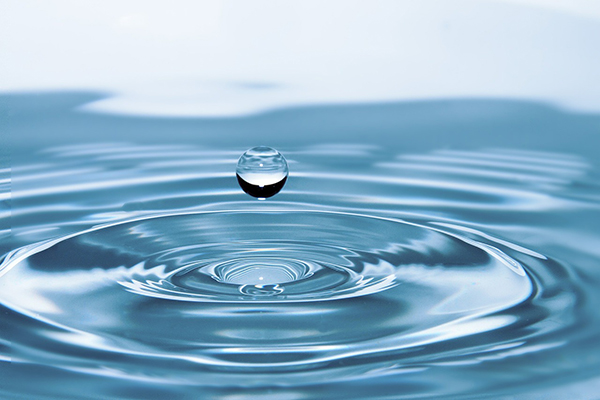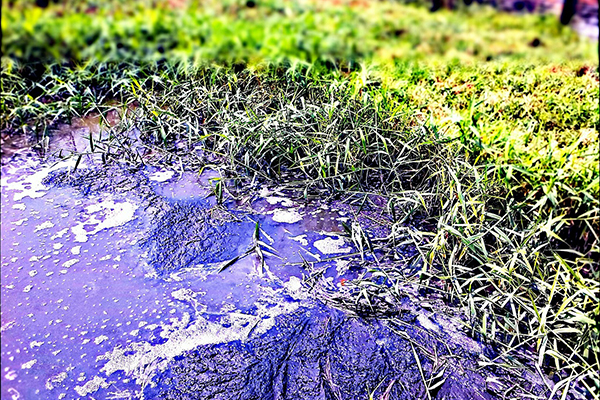
Water: the world’s most important resource. Life springs from it, is nourished by it, and quickly dies without it.
Experts who clean the world’s wastewater and manage its water supplies are found in government agencies, public and private companies, and each is working hard to keep clean water flowing. And not just to drink, bathe and play in, but to use in industrial processing and food manufacturing, too.
If you’re a water quality professional, you’ll likely be attending the upcoming Water Environment Federation’s Annual Technical Exhibition and Conference. The largest exhibition of its kind in the world, WEFTEC 2016 is being held in New Orleans in September, and will play host to nearly 1,000 exhibiting companies. A perfect place to network, exhibitors will be bringing their latest technologies and solutions to show (along with technical experts to explain it all).
You may see some of the 15 water and wastewater treatment and management companies listed below at WEFTEC. Global or national, big or small, these groups and individuals are making a difference, one community, one facility, one industry at a time.

El Paso Water
Living up to its vision of delivering sustainable water services to the community it serves, El Paso Water is reported by WaterWorld magazine to be purchasing a 26,470-acre ranch as a future source of groundwater. While the pipeline system will not be operational until 2050, at a total estimated cost of $600 million, it is said to secure the future of El Paso’s water needs.
Water Standard
Delivering water treatment services to the energy industry, including offshore facilities, Water Standard offers everything from individualized designs to turn-key and rental systems. With an eye on the bottom line, yet meeting the oil and gas industry’s stringent requirements, the company’s treatment and management services include membrane systems, filtration, desalination and full cycle.
Water management, not treatment, is crucial to the oil industry, Amanda Brock writes in the June issue of Global Water Intelligence. It’s also just as crucial for water companies to combine services. She points to the demise of standalone water treatment companies since the 2014 oil industry downturn, and says that oil producers looking to restart and expand in today’s healthier climate will actually avoid the cost of treatment if at all possible.
DC Water
DC Water just launched an interactive online tool allowing its customers to look up whether service lines are lead, copper or galvanized iron. Because the water system dates back to the 1800s and lead was a commonly used pipe-building material through the 1950s, it is quite possible for homeowners to find that their private property pipes do indeed contain lead. DC Water offers free water testing for lead and other resources to help area residents stay safe and remove lead sources.
American Water
This 130-year-old company provides drinking water and wastewater services to some 15 million people nationwide. Its R&D is impressive, writes Heather Clancy of Green Biz: “Among other things, it is testing technologies including smart meters and acoustic pipeline monitoring systems, demand response systems that automate water pump schedules for improved efficiency and — with more frequency — water reuse strategies and processes.”
Still, American Water Vice President and Chief Environmental Officer Mark W. LeChevallier, Ph.D., reminds us that all that filtration and purification started with something as old as the earth itself: dirt.
NALCO Water
An Ecolab company, NALCO Water has been in the water treatment business for more than eight decades, specializing in industrial applications. Some of its services include:
- helping healthcare customers manage risk for waterborne pathogens,
- reducing electricity costs by as much as $.15 per square foot through a coil flow program,
- and lowering water usage by up to 30 percent through cooling water technology.
Lindsay Corporation
Today an international water management systems and products provider, Lindsay Corporation started in the 1950s as a farm equipment business. Writing for The Street’s Real Money, James Gentile says, “Irrigation, both domestically and internationally, comprises about 80 percent of Lindsay’s revenue.”
And while he notes that sales have been hit by lower spending, global demand for irrigation systems and technology, together with “terrific variable cost management and increasing manufacturing efficiencies,” have kept Lindsay’s balance sheet neutral and dividend payouts up.

BioGill
Headquartered in Australia, this private company was founded in 2009, offering above-ground modular and scalable water treatment technology. Developed by researchers at the Australian Nuclear Science and Technology Organisation, BioGill units treat industrial wastewater across industries including sewage, food and beverage and aquaculture.
The results are impressive. One customer, a sustainable winery near Toronto called Cave Spring Cellars, reduced the bio-contamination of its wastewater by up to 98% through the use of BioGill technology.
Ayala Aqua
This Israeli firm operates with a simple goal: “Use natural, energy-free tools to restore balance to the environment.” With sustainable solutions implemented in countries all over the world — including Chile, the United States, France, Germany and India, among others — Ayala Aqua is doing just that.
ISRAEL21c Associate Editor Abigail Klein Leichman writes about the company’s phytoremediation systems, which purify wastewater using plants. Ayala founder and CEO Eli Cohen calls it “active landscaping.”
“You can treat your own sewage in the park or garden and use the purified water to irrigate,” he explains. “You can produce high-quality water from nature if you create the right environment of plants, gravel and soil, and special natural additives for specific problems such as heavy metals and radioactive elements. If you do it in a natural way, it can last forever.”
Water Quality Specialists
This full-service water treatment company located just outside of San Diego operates water and wastewater treatment plants and systems throughout Southern California. The operators at WQS work closely with a maintenance division that installs and services the equipment. They specialize in the operation of a variety of wastewater treatment plants, including activated sludge, biological filtration, disinfection, pond and lagoon system, and tertiary treatment. WQS also offers services in water treatment, small water systems and reclaimed water.
OCSD
The Orange County Sanitation District has the “largest ‘toilet-to-tap’ facility on the planet,” writes Bloomberg’s Amanda Little. It purifies wastewater to the tune of 100 million gallons, every day, which is enough drinking water for 850,000 people. The filtration technology to make water fit for human consumption uses polymer membranes, which remove contaminants microscopic in size.
Why is this technology so crucial? As Tim Quinn, executive director of the Association of California Water Agencies, tells Little: “Recycled wastewater will probably be the single largest source of water for California over the next quarter century. And it isn’t just happening here — the same goes for many water-strapped regions of the world.”
WesTech
An employee-owned company in Salt Lake City, WesTech Engineering designs, refines and manufactures water treatment processes and equipment. These can be used in communities or for industrial purposes, but whatever the use, WesTech senior account manager John Gottschall tells Company Week the company’s raison d’être is to treat water.
“We either clean the water of the material that’s in it or we capture the solids that are suspended in the water because they are valuable,” the company writes.
Aeration Industries
For more than 40 years, Aeration has been providing wastewater treatment expertise and products to municipalities and industries. Its goal is simple: “to achieve and maintain clean, safe water supplies,” because life depends on it.
While the largest users of Aeration technologies tend to be industrial and municipal plants, aquaculture-based businesses, like fish farms and commercial ponds and rivers, as well as leisure properties like golf courses, also use their clean water systems.
DMP Corporation
Since 1971, DMP Corporation has been telling customers to get back to work and let them worry about wastewater issues. With an experienced and expert team, DMP understands the unique nature of wastewater removal, which changes by industry and facility. They have developed continuous flow and batch treatment systems, each modular, adaptable and customizable, designed so that a working system can be up and running fast.
DMP deals with process water, which might require a simple filtration or a closed-loop reuse system, sludge dewatering, and designs for zero liquid discharge where necessary. Technologies used include chemical and biological, in addition to filtration and separation.
Yates Environmental Services
Water industry professional James Yates is the principal of Yates Environmental Services, a private practice engineering and research firm in Spokane, Washington. Yates provides treatment solutions, process design reviews and system audits. Sometimes he works for third party investment groups, and at times manages projects for large industrial customers.
Specific examples of some of his projects include: market research analysis for the Oil Sands of Canada; retrofitting an existing treatment system, and saving his client a costly capital upgrade; and inspecting a municipal wastewater system for operational issues.
BioFiltro
Another wastewater purification company with a natural filtration system is BioFiltro. Started by a biophysicist in Chile 25 years ago, the methods the company developed used earthworms and bacteria. Today, the system is capable of “filtering organic liquid waste at an industrial scale.”
Those worms in BioFiltro’s BIDA system not only remove up to 99% of the water contaminants, but they do it in 4 hours and use some 95 percent less energy than traditional models. Across industries and environments, the modular technology to date has processed billions of gallons of liquid waste, at a rate of millions of gallons per day.
For a great look at how the process works, raise a glass of Fetzer and read Matt Weiser’s article at The Guardian.
Credits:
Rony MichaudChitsu San
Thomas Mühl

